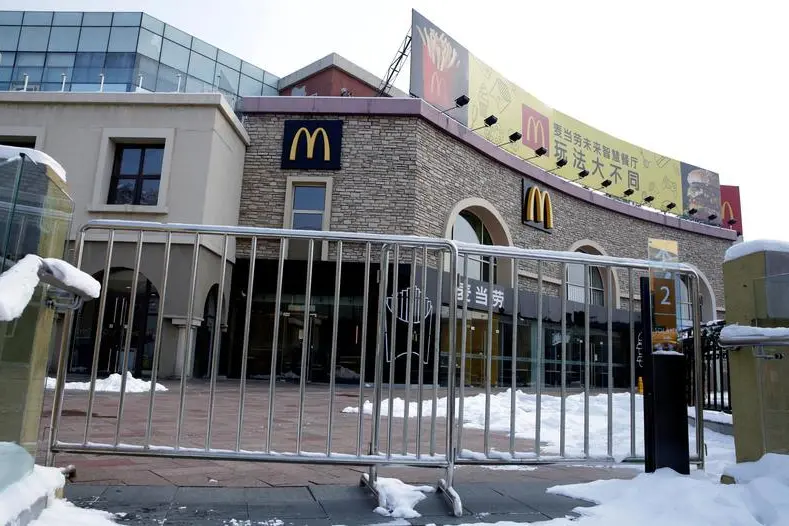PHOTO
HONG KONG - Buyout funds could become a white knight for China’s dining sector. McDonald’s, KFC operator Yum China and hotpot chain Haidilao have all closed stores on the mainland as the coronavirus spreads. Until now, Chinese restaurants and private equity have been wary of each other. That may be about to change.
Yum China has closed over 30% of its roughly 9,000 mainland outlets since the Lunar New Year holiday and reported a 40% to 50% decline in same-store sales at the ones that have remained open. McDonald’s closed hundreds of stores in the country, while Haidilao and pickled fish purveyor Jiumaojiu closed all of their mainland outlets. During the 2003 SARS epidemic, the restaurants and lodging industry was the hardest-hit consumer sector, according to analysts at China Renaissance. This time could be worse, coming as it does in the midst of a wider economic slowdown. Jia Guolong, who runs a popular casual dining chain called Xibei, estimated to local media that the restaurant sector employs 30 to 40 million people.
With ample cash and little debt, $17 billion Yum China should survive. But there are plenty of independent chains with weaker balance sheets, including Xibei. Jia confessed he has enough cash to last only three months at his current burn rate.
With banks naturally cautious, bargain-shopping buyout funds could find founders like Jia more receptive, especially those that aspire to expand abroad. Despite dated stereotypes, many of the chains have evolved into sophisticated, tech-savvy operations, with massive investments in transparency and food safety, a major concern for Chinese diners. Those that haven’t could use a helping hand.
But the industry, which generated $717 billion in sales in 2019 according to Euromonitor, still isn’t for the faint-hearted. Competition is fierce, and wages and food costs are rising. They can be tricky to scale, and difficult to audit, as CVC learned the hard way with its disastrous 2014 buyout of the South Beauty chain. For their part many owners, who like control, have been leery of private capital. But if the post-SARS experience is anything to go by, consumption could rebound quickly once the virus is brought under control. For investors with the stomach, now might be a good time to dine out.
On Twitter https://twitter.com/AlecMac11
CONTEXT NEWS
- Fast-food giant McDonald’s closed several hundred of its roughly 3,300 outlets in China, Reuters reported on Feb. 5, while Chinese hotpot chain Haidilao announced the suspension of its restaurants in the country until further notice.
- Starbucks also closed over half its roughly 4,300 stores on the mainland and delayed a planned update to its 2020 earnings forecast, the report added. Furniture chain IKEA also closed its stores in China, and Burger King closed some restaurants.
(Editing by Pete Sweeney and Katrina Hamlin) ((alec.macfarlane@thomsonreuters.com; Reuters Messaging: alec.macfarlane.thomsonreuters.com@reuters.net))





















